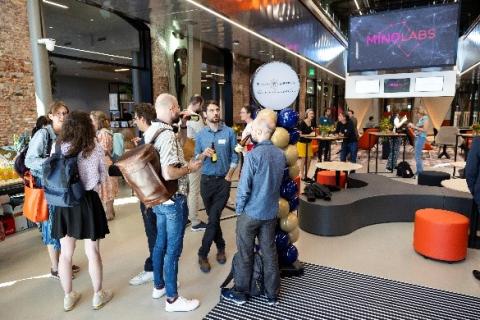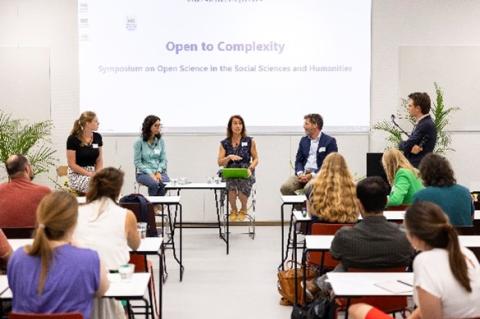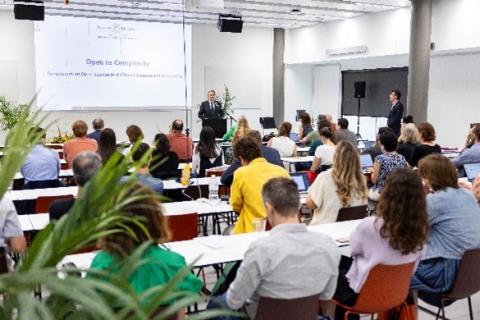Open to Complexity: Symposium on Open Science in the Social Sciences and Humanities
In the thought provoking ‘Open to Complexity: Symposium on Open Science in the Social Sciences and Humanities,’ Tilburg School of Humanities and Digital Sciences successfully brought together various scholars and policy makers to reflect on the creation and implementation of open research practices based on openness, transparency, and trust. Held in the recently opened MindLabs on September 5th, the day included multiple lively discussions concerning academia’s call for Open Science, including its implementations and challenges, within the context of Humanities and Social Sciences.
How would you practice Open Science when your academic discipline is not immediately associated with hypotheses, confirmatory statistics, and formulas? And how can open research practices be embraced while taking into account the potentially unintended yet harmful consequences? These and other questions were actively debated by around 100 national and international scholars, policy advisors, and students from various disciplines, universities, and research institutes.

Role Models
Following the official opening of the event by Rector Magnificus Professor Wim van de Donk, was an insightful keynote by Professor Sabina Leonelli (University of Exeter), who received an honorary doctorate from Tilburg University the day before. In her talk she proposed an alternative vision of Open Science, whereby inclusion leads to transparency and suggested ways to value the humanities, arts, and social sciences as role models when it comes to certain aspects of Open Science implementation. The morning parallel sessions included talks about Open Science as a space for reflexive policy making, the value of open research software and FAIR data and the normativity and institutionalization of Open Science. The afternoon sessions, meanwhile, focused on potential learnings from replication studies and the wider applicability of Open Science within more qualitative research and disciplines.
Learning from each other
The event ended with a round table discussion on the particularities of Open Science within Humanities and Social Science with Hans de Jonge (Dutch Research Council, NWO), Sabina Leonelli (University of Exeter), Angelica Maineri (Data Manager at ODISSEI), and Esther van Vliet (KTO, Tilburg University). Each of them started with their opening statement on topics such as open scholarly communication, public engagement and FAIR data and software, which led to an engaging discussion with the audience. Among other insights, Professor Leonelli for example, stated that researchers can be more reflective on the type of sources they use and be more open about them, while historian and director of Open Science NL, Hans de Jonge, concluded that Open Science can be difficult for some sciences, but scientists just have to accept epistemological diversity. Finally, Dean of Tilburg School for Humanities and Digital Sciences, Boudewijn Haverkort, closed this inspirational and informative symposium with a call for more cooperation between scholars of various disciplines to continue learning from each other how to embrace Open Science responsibly.


